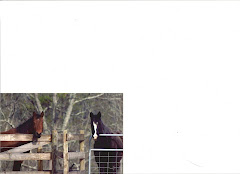Naming someone, your child, yourself, your God, is a power-full and power bestowing process. When we have children, we spend hours reading books of names, checking out the family history for names, looking at the meaning of different names. Our names not only separate us from others with different names but they can provide a pattern for our being.
When I was born, I was named Peggy Joyce. My beloved great-aunt was named Margaret, my mother’s sister was named Margaret after her, I was named Peggy ( the nick name for Margaret) and I named my daughter Megan (the Irish version of Margaret). Each of these forms of the name Margaret carry different meanings. When filling out forms, I am always asked if my given name is Margaret. Peggy is not seen as a "proper" first name. My name has many meanings for me. It sounds friendly, non-threatening, "cute", relaxed and easy to remember. It also doesn’t sound very grown-up, dignified, or complete. In many ways I have grown to fit my name and have had to work to grow outside my name.
For the first thirty years of his life, my husband was called "Mickey", a nickname for Michael. As he studied for his Ph.D. and began to claim his professional competence as a pastor and counselor, Mickey no longer seemed an accurate description for who he was becoming. It was fascinating to watch friends and family struggle with his name change. Many had a deep attachment to his "Mickey-ness". They needed him to continue being the "Mickey" they had loved and known for years... perceived as fun loving, carefree, easy going, cute young man with boundless energy and enthusiasm. This new "Michael" person was an unknown and many found the change profoundly disturbing.
Naming God is a complex process. God’s names are different for each of us because of our history, our belief systems, our life experiences, our education, our needs and our style of religious language. We can create adjectives, nouns and verbs to name God. We can call God by names that may seem patriarchal to someone else but feel comfortable and natural to us. We can call God "Mother" and connect with the nurturing motherly form of God while others find it difficult to attach any anthropomorphic images at all to God’s name. I can imagine resting in the arms of Jesus when I am suffering while friends of mine imagine God’s care being an unnamed Presence.
The bottom line for me is the total acceptance of all the names for God. My names are no more or less important than the names for God used by theologians and other cultures. The importance of God’s names is in the claiming of the names that suit your particular experience. There is no "one size fits all" name for God. It doesn’t matter whether it is exclusively gender inclusive, exclusively male or female, anthropomorphic or not, noun, verb or adjective... it matters not. What matters is our naming of God for ourselves. There in lies the power. And, the changing nature of our names for God is a part of our growth as spiritual beings.
There are times when Michael’s "Mickey-ness" surfaces and his playful, enthusiastic self is full and overflowing. There are times when his "Michael-ness" is on call and the talented counselor/pastor is available. Sometimes I am "Margaret". The nurse who got snippy with me in the doctor’s office when I complained about waiting an hour to see the doctor got a full dose of "Margaret". I am Peggy/Margaret when I teach and create art. I am Peggy, pure and simple, when I play with my grandsons. All of these names are nothing but a partial representation of who we are. The names we give God are only a piece of God and all the names in the world cannot adequately or accurately define God. The names we give God only reflect our perceived or desired experience of God.
Why is it then that we struggle so with others names for God that do not sound the same as ours? I suspect it has much to do with our own unresolved issues about the nature of God. It should not matter to me if another Christian can only see God as "Father" if the fruit of that person’s life matches the fruit of a Christian life. If I need to call God by many names, and ask for the right to do so, I must be willing to grant, even encourage the naming of God that doesn’t fit my theological construct. Again, the bottom line is the continuing engagement in the naming process for God. As we change, our names change. Perhaps our names change because God changes. We will not know in this lifetime which names are "right" and which names are "wrong". All we can know for sure is what names we call out when we despair, or rejoice, or suffer, or celebrate or give thanks to the One whom we call God.
I wonder what names God calls me?
Subscribe to:
Post Comments (Atom)









No comments:
Post a Comment